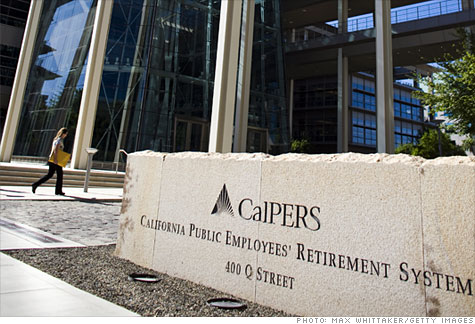CA pension reform and the lessons for NV
State policymakers across the nation have had their eye on Sacramento this week as California Governor Jerry Brown has tried to usher public employee pension reform through that state's legislature. Brown has been pushing for significant changes to the state's pension system, which is underfunded by at least $150 billion.(The $150 billion figure is the unfunded liability valuation calculated by the actuarial method and published in the system's official financial reports. However, nearly all economists agree that this accounting method is problematic and does not accurately reflect total system liabilities because it does not account for the pricing of risk among the system's assets. A more accurate accounting method reveals that public pensions in California are underfunded by at least $398 billion.)
Yesterday, Brown hosted a press conference in which he announced that agreement had been reached with legislative leadership, although he did not get the most significant reforms he was seeking. A key plank of Brown's 12-point plan for relatively greater fiscal discipline had been to transform the state's pension systems into a Utah-style hybrid that combines elements of a defined-benefits pension with a 401(k)-style defined-contribution plan. (NPRI has recommended the same reform for Nevada.)
Under the new compromise, Brown agreed to drop that demand, however, citing the difficulty of negotiating pension reforms with a Democrat-controlled legislature and the government unions that fund their campaigns. (Brown is a Democrat himself.)
The key points of the compromised reform package are as follows:
1. An annual cap on pension payments for new employees at $110,100, or $132,120 for workers who do not qualify for Social Security.While the reform package is a step in the right direction, it's only a baby step. The changes only apply to new hires going forward and not to workers already participating in the system. That means that it will essentially have no bearing on the liabilities already accrued by the system. The Utah-style hybrid plan was the centerpiece that allowed the package to offer relief to the state's fiscal hole and, without it, Sacramento's finances will really be no better next week than they were last week.2. New employees must match taxpayers' initial contributions into their retirement accounts. This provision, however, will be subject to collective bargaining, which means that union bosses can mount campaigns designed to sway city councils into covering the employee share with city tax dollars.
3. The minimum retirement age for new hires will increase from 55 to 67, reflecting longer lifespans. For public safety workers the minimum retirement age will increase from 50 to 57.
4. Controls will be introduced to limit the practice of "spiking." (Nevada lawmakers enacted similar provisions in 2009 after Senate Republicans demanded the change in order to agree to a $780 million tax-hike package.)
5. The purchasing of "air time" will be eliminated.
6. Government workers will become ineligible to collect pensions if they are convicted of a work-related felony. (It might surprise most people to know that this isn't already the case in most states--including Nevada.)
Still, the obstacles to achieving even modest reform are becoming clear as government union bosses have reacted vociferously to the announcement that any reform might become law. Union bosses have vowed to fight the reforms, either through referendum, through the courts, or both.
The executive director of the state teacher union has said that the reform package would force government workers to "retire in poverty." Once taxpayers learn that $132,120 per year plus full health benefits is considered poverty, they're likely to all claim poverty and petition Sacramento to make government unions finance retirement packages for them!
My favorite comment, though, comes from Paula Ready, spokeswoman for the San Bernadino Public Employees' Association, who says the reforms are "not responsible." Meanwhile, the City of San Bernadino filed for bankruptcy earlier this month precisely because it could not keep pace with the mounting pension obligations foisted upon it by Ready's union. So even modest reform is "not responsible?" How ironic.
These stories only foreshadow the fight that lies before Nevadans along the road to pension reform. However, it's telling that even in California and Illinois state policymakers have been forced to address the pension underfunding issue because they simply cannot deliver quality services and keep up with rapidly mounting pension liabilities at the same time. Nevada, likewise, must address its impending pension apocolypse if it is to meet the budget challenges that lie before it in future years.
It's not a political imperative. It's simply a math issue.






